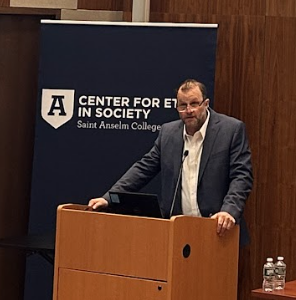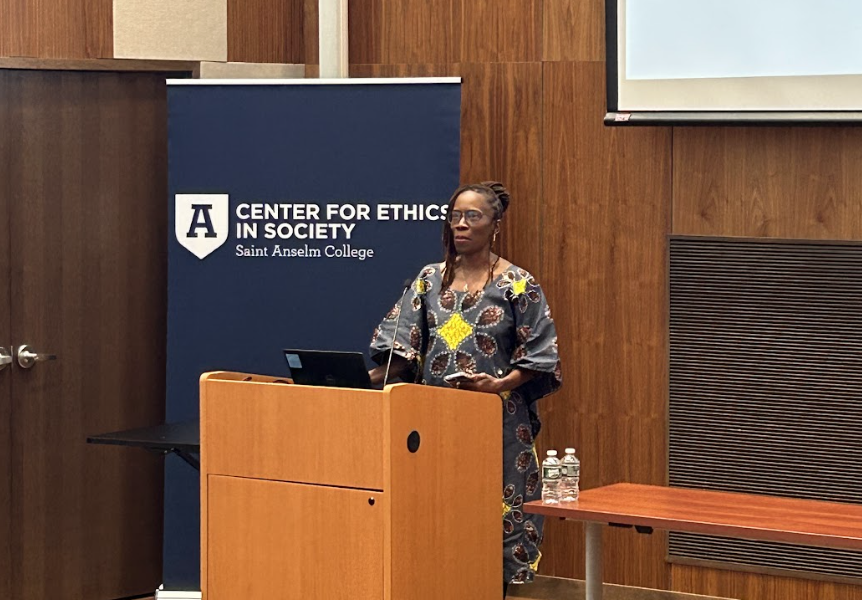“I’m a trauma psychologist and I’m here to talk to you about hope,” stated Dr. Thema Bryant, president of the American Psychological Association, at a lecture hosted by the Center for Ethics and the Psychology Department. The Sept. 19th lecture was part of the Center for Ethics’ Contemporary Issues Series and was titled “Seeds of Hope: Mental Health in Our Communities.” Dr. Bryant acknowledged that given her practice as a trauma psychologist, it might seem strange that her talk would focus on hope; however, she spoke about the importance of radical hope to mental health and to our communities.
Dr. Rickenbach, professor of psychology, introduced Dr. Bryant to lecture attendees. Dr. Bryant is the 2023 president of the APA, professor of psychology at Pepperdine University, and an ordained minister. At Pepperdine she directs the Culture and Trauma Research Laboratory, where her research focuses on “interpersonal trauma and the trauma of societal oppression.” She works to “decolonize psychology” through conversations about mental health and systemic racism.
Dr. Bryant opened her lecture by acknowledging that the College campus is located on the lands of the indigenous Abenaki, Pennacook, and Wabanaki people of New Hampshire. She also acknowledged the history of the US and its result of the labor of people of African descent. She said that these acknowledgements were not meant to be performative, and that the goal was to be “intentional” in making sure “our awareness guides our actions.”
Dr. Bryant spoke about her journey from a trauma survivor to a trauma psychologist. She said that “psychology as a science is fundamentally hopeful,” since so much of her practice is focused on the belief that we, as a community and as individuals, “can do or be better than we are right now.” She defined radical hope as “a belief in what must be possible.”
She described this practice as “holding on to strength with our eyes wide open,” with this practice being “rooted in collective survival and support.” It is important to note that this belief is not toxic positivity, Dr. Bryant said, since it does not deny the realities of trauma and oppression. She said that “hope does not go away” even when there are people working to uphold the status quo.
Dr. Bryant has been challenged about certain areas of her practice, receiving “pushback in her field about racism and oppression being traumas.” Racism and oppression are very real traumas, and Dr. Bryant stated, “Whoever thinks that racism is the same as someone hurting your feelings hasn’t been paying attention.” She described oppression as an institutional and systemic force that has traumatic effects on an individual.
Dr. Bryant noted the importance of mindfulness in trauma recovery and said that answering the question “What is the foundation of our hope?” is key. For Dr. Bryant, and for many others, the foundation of her radical hope is found in her faith.
Dr. Bryant closed her lecture by stating the importance of not just decolonizing Western psychology, which she described as “dismantling harmful systems,” but of looking towards a stronger future. She said that liberation is the crucial next step after dismantling these systems, and liberation involves asking the question, “What are we trying to create in its place?” She told students “you hold the hope in this room” and encouraged them to “cultivate your seeds of hope by beginning to dream a new dream.”

introduced the event. (Courtesy/Kathryn Williams )


